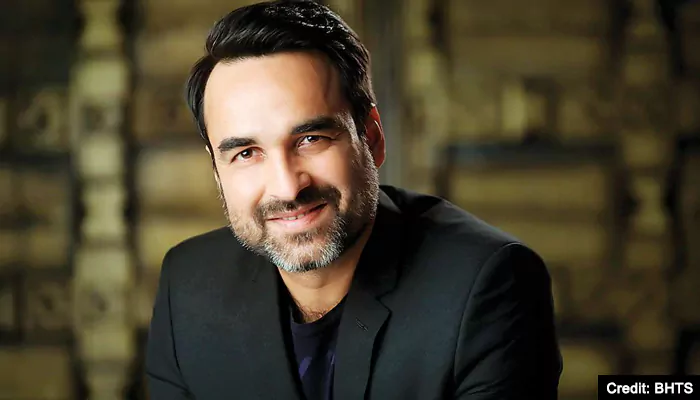
From a farmer’s son in Bihar to Bollywood’s face of authenticity, his story is one of grit, grace, and unexpected blessings
Imagine a boy standing in a dusty field in rural Bihar, gazing longingly at a neighbour's tractor. For young Pankaj Tripathi, this machine was more than just a vehicle—it symbolised progress, dignity, and the promise of a better life. Yet, that tractor never arrived. What seemed like a crushing denial at the time turned out to be destiny's greatest gift.
Today, as Tripathi turns 49, India celebrates not only an actor but a storyteller of extraordinary depth, whose art continues to reflect the struggles and triumphs of ordinary lives.
Born into a modest farming family in Gopalganj, Bihar, Tripathi grew up with a simple dream—to own a tractor that could ease his father's toil. However, the family’s financial hardship meant that the dream remained unfulfilled.
Years later, Tripathi would reflect that if the tractor had arrived, he might have remained a farmer, never stepping into the uncertain, intoxicating world of cinema. Sometimes, fate shapes lives by denying us our earliest wishes.

Credit: MensXP
Initially, acting was not on his horizon. His father encouraged him to pursue a career in medicine, hoping for the stability that a doctor’s career would bring. Tripathi moved to Patna with those hopes, but gradually shifted towards a career in hotel management. Even then, his nights were filled with the stage. Street plays, college theatre, and rehearsals steadily drew him into the captivating world of performance.
His passion prompted him to apply to the National School of Drama in Delhi. However, entry was not immediate—he faced rejection three times before finally succeeding. That resilience became a key theme of his life: fall, rise, repeat.
The early years in Mumbai were harsh. From 2004 to 2007, Tripathi struggled with small roles, sometimes uncredited and often overlooked. His wife, Mridula, a schoolteacher, kept their household running while he relentlessly pursued his auditions. He later admitted that without her unwavering support, his dream might not have survived.
Then came Anurag Kashyap’s Gangs of Wasseypur (2012). As Sultan Qureshi, Tripathi wasn’t the lead, but his presence was captivating—authentic, menacing, unforgettable. The performance woke up the industry to his talent.

Credit: The Hindu
What followed was an extraordinary decade. Films like Newton, Masaan, and Stree showcased his versatility. Web series such as Mirzapur made him a household name. Whether portraying a corrupt politician, a compassionate father, or a ruthless gangster, Tripathi combined intensity with restraint. He was never over the top; instead, he made the ordinary seem profound.
By 2017, he was involved in nearly a dozen projects annually. Yet amidst the praise and awards, Tripathi stayed humble. “Simple things make me happy,” he often said—reflecting his farmer roots even while at the height of Indian cinema.
Success, however, taught him the importance of slowing down. After years of relentless shooting schedules, Tripathi began prioritising health, fitness, and family. He realised that longevity as an artist required more than just work—it demanded rest, reflection, and renewal.

Today, Pankaj Tripathi exemplifies a kind of stardom rarely seen in Bollywood. He is not a hero shaped by glamour but an actor carved from truth.
His characters—whether gentle, flawed, or fearsome—bear the weight of real experience. Through them, he has become a symbol of resilience for countless Indians who see parts of their own struggles reflected on screen.